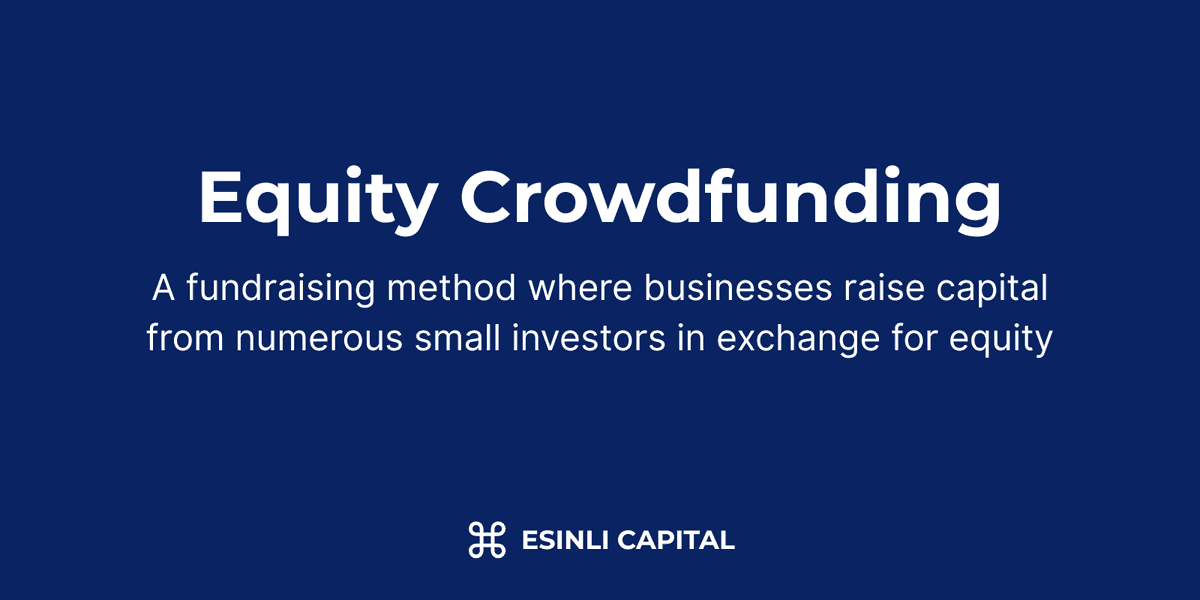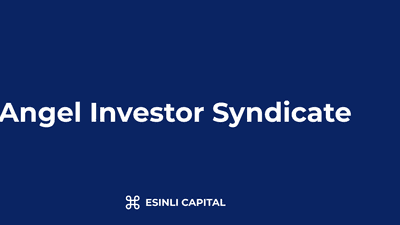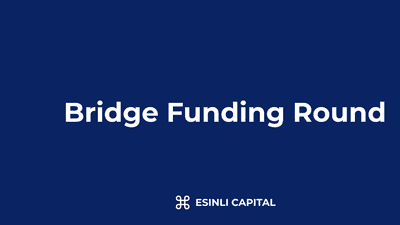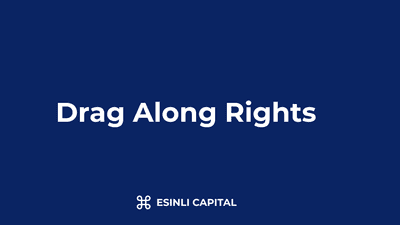Table of Contents
- What Is Equity Crowdfunding?
- Understanding Regulation Crowdfunding (Reg CF)
- Top Equity Crowdfunding Platforms
- How to Run a Successful Equity Crowdfunding Campaign
- Equity Crowdfunding vs. Traditional Funding Methods
- Legal and Regulatory Considerations
- Best Practices for Investor Relations
- Equity Crowdfunding for Startups
- The Future of Equity Crowdfunding
- FAQs
- The Bottom Line
- What Is Equity Crowdfunding?
- Understanding Regulation Crowdfunding (Reg CF)
- Top Equity Crowdfunding Platforms
- How to Run a Successful Equity Crowdfunding Campaign
- Equity Crowdfunding vs. Traditional Funding Methods
- Legal and Regulatory Considerations
- Best Practices for Investor Relations
- Equity Crowdfunding for Startups
- The Future of Equity Crowdfunding
- FAQs
- The Bottom Line
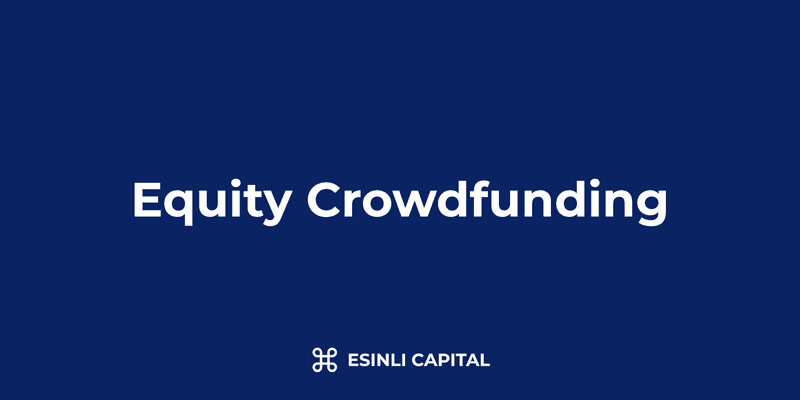
Equity Crowdfunding for Startups: Platforms, Regulations & Best Practices
KEY TAKEAWAYS
- Equity crowdfunding allows startups to raise capital from both accredited and non-accredited investors in exchange for equity stakes in the company.
- Regulation Crowdfunding (Reg CF) permits companies to raise up to $5 million in a 12-month period through registered funding portals.
- Successful campaigns typically require 3-6 months of preparation, compelling pitch materials, and active community engagement.
- Platforms like Wefunder, StartEngine, and Republic charge 6-8% of funds raised, with additional fees for services like escrow and compliance.
- Unlike rewards-based crowdfunding, equity campaigns involve securities regulations, disclosure requirements, and ongoing investor relations obligations.
What Is Equity Crowdfunding?
Equity crowdfunding is a financing method that enables startups and early-stage companies to raise capital from numerous investors—including non-accredited retail investors—in exchange for ownership shares in the business. Unlike rewards-based crowdfunding (like Kickstarter), where backers receive products or perks, equity crowdfunding investors become actual shareholders with potential for financial returns if the company succeeds.
The concept emerged as part of the Jumpstart Our Business Startups (JOBS) Act, which was signed into law in 2012, though the final regulations for non-accredited investor participation weren't implemented until 2016. Since then, equity crowdfunding has evolved into a significant alternative funding channel for entrepreneurs who may not have access to venture capital or who wish to involve their customers and community in their growth.
How Equity Crowdfunding Works
The equity crowdfunding process typically follows these steps:
-
Platform Selection: Companies choose a registered funding portal or broker-dealer platform that aligns with their industry and fundraising goals.
-
Campaign Preparation: Startups prepare their offering materials, including business plans, financial statements, pitch decks, and valuation details.
-
Regulatory Compliance: Companies file Form C with the Securities and Exchange Commission (SEC) and prepare required disclosures.
-
Campaign Launch: The offering goes live on the chosen platform, where investors can review materials and make investment decisions.
-
Marketing Phase: Companies actively promote their campaign through social media, email marketing, and investor webinars.
-
Closing and Fund Disbursement: When the campaign concludes successfully, funds are transferred to the company, and investors receive their equity stakes.
-
Investor Relations: After fundraising, companies maintain communication with their new shareholders through updates and reports.
Most equity crowdfunding platforms operate on an all-or-nothing model, where companies must reach their minimum funding goal to receive any money. This protects investors from funding undercapitalized ventures.
Understanding Regulation Crowdfunding (Reg CF)
Regulation Crowdfunding, commonly known as Reg CF, is the regulatory framework that governs equity crowdfunding in the United States. Established by Title III of the JOBS Act and implemented by the SEC in 2016, Reg CF created a structured environment for small businesses to offer and sell securities through crowdfunding.
Key Provisions of Regulation CF
-
Fundraising Limits: Companies can raise up to $5 million in a 12-month period (increased from $1.07 million in March 2021).
-
Investor Limits: Individual investment limits are based on income and net worth:
- If annual income or net worth is less than $107,000: May invest the greater of $2,200 or 5% of the lesser of annual income or net worth.
- If both annual income and net worth are equal to or more than $107,000: May invest up to 10% of the lesser of annual income or net worth, not to exceed $107,000.
-
Required Disclosures: Companies must file Form C with the SEC, which includes:
- Business description and organizational structure
- Names of officers, directors, and 20%+ shareholders
- Business plan and intended use of proceeds
- Target offering amount and deadline
- Price of securities or method for determining price
- Financial statements (requirements vary based on offering size)
-
Annual Reporting: Companies must file annual reports (Form C-AR) with the SEC and provide them to investors.
-
Funding Portal Regulations: Platforms must register with the SEC as a funding portal or broker-dealer and become a member of FINRA.
Exemptions and Alternatives to Reg CF
While Regulation CF is the primary framework for equity crowdfunding, other exemptions may be relevant depending on company needs:
-
Regulation D: Allows private placement offerings primarily to accredited investors.
- Rule 506(b): Unlimited fundraising from accredited investors and up to 35 sophisticated non-accredited investors.
- Rule 506(c): Unlimited fundraising exclusively from accredited investors, with permission for general solicitation.
-
Regulation A+: A mini-IPO option allowing companies to raise up to $75 million in a 12-month period.
- Tier 1: Up to $20 million with state registration requirements.
- Tier 2: Up to $75 million with more extensive reporting but preemption of state regulations.
-
Intrastate Offerings: Some states have their own crowdfunding regulations for businesses operating within state borders.
Top Equity Crowdfunding Platforms
The platform you choose can significantly impact your campaign's success. Each has different fee structures, investor demographics, and industry specializations.
Leading Platforms for Startups
-
Wefunder
- Market Position: Largest funding portal by volume
- Fees: 7.5% of funds raised
- Minimum Investment: $100
- Specialties: Tech, food & beverage, consumer products
- Notable Features: Rolling closings, investor groups, lead investors
-
StartEngine
- Market Position: High-volume platform with strong brand recognition
- Fees: 7-8% of funds raised + $10K setup
- Minimum Investment: $100
- Specialties: Consumer products, transportation, gaming
- Notable Features: Secondary trading marketplace, investor OwnBoard
-
Republic
- Market Position: Curated platform with high acceptance standards
- Fees: 6% of funds raised + 2% equity
- Minimum Investment: $100
- Specialties: Tech, sustainability, media, gaming
- Notable Features: Crypto offerings, Note token system, Republic Retail
-
SeedInvest
- Market Position: Highly selective (1-2% acceptance rate)
- Fees: 7.5% cash + 5% equity
- Minimum Investment: $500-$1,000
- Specialties: Tech, healthcare, enterprise solutions
- Notable Features: Auto-invest feature, extensive due diligence
-
Netcapital
- Market Position: Growing platform with broader acceptance
- Fees: 4.9% of funds raised
- Minimum Investment: $99
- Specialties: Tech, healthcare, real estate
- Notable Features: Integration with Nasdaq, secondary market capabilities
Platform Selection Criteria
When choosing a platform, consider:
- Investor Base: The size and demographics of the platform's investor community
- Industry Focus: Whether the platform has experience with your type of business
- Success Rate: The percentage of campaigns that reach their funding goals
- Marketing Support: What promotional assistance the platform provides
- Fees and Terms: Total cost including setup, success fees, and equity options
- Post-Campaign Services: Investor relations tools and secondary market options
Most platforms charge success fees ranging from 6-8% of the total raised, with additional fees for services like escrow management, compliance support, and marketing assistance.
How to Run a Successful Equity Crowdfunding Campaign
Launching an effective equity crowdfunding campaign requires extensive preparation and strategic execution. Research shows that successful campaigns typically have several months of preparation before launching.
Pre-Campaign Planning
-
Build Your Audience First: Begin cultivating a community at least 3-6 months before launch.
- Grow your email list, social media following, and customer base
- Engage with potential investors through content marketing
- Secure 20-30% of your funding target from your network before public launch
-
Prepare Compelling Materials:
- Create a professional pitch video (2-3 minutes) that explains your vision
- Develop a detailed pitch deck with clear business model and growth metrics
- Gather testimonials from customers and early investors
- Prepare financial projections and valuation justification
-
Set Realistic Terms:
- Determine a defensible valuation (typically 2-5x revenue for early-stage companies)
- Choose an appropriate minimum investment amount ($100-$250 is common)
- Consider offering investor perks or rewards at different investment tiers
Campaign Execution
-
Launch Strategy:
- Begin with a "quiet period" where you invite your closest supporters
- Create momentum by securing 30% of your goal in the first week
- Plan media outreach to coincide with key campaign milestones
-
Investor Communication:
- Respond to investor questions promptly (within 24 hours)
- Host regular investor webinars or Q&A sessions
- Provide weekly campaign updates highlighting progress and milestones
-
Marketing Tactics:
- Implement email drip campaigns to nurture potential investors
- Use retargeting ads to reach people who viewed your campaign
- Leverage press coverage and industry influencers
- Create FOMO through countdown timers and funding updates
Post-Campaign Management
-
Investor Relations:
- Send monthly or quarterly updates to your investor community
- Create a dedicated investor portal or newsletter
- Be transparent about challenges and pivots
-
Regulatory Compliance:
- File required annual reports with the SEC (Form C-AR)
- Maintain accurate capitalization tables
- Consult with securities attorneys for ongoing requirements
According to industry data, campaigns that reach 30% of their funding goal have a 90% chance of reaching their full target, underscoring the importance of early momentum.
Equity Crowdfunding vs. Traditional Funding Methods
Understanding how equity crowdfunding compares to other funding sources helps entrepreneurs determine the right financing mix for their business.
| Aspect | Equity Crowdfunding | Venture Capital | Angel Investment | Bank Loans |
|---|---|---|---|---|
| Control | Founders maintain more control with many small investors | VCs often require board seats and significant control | Angels typically have less control than VCs | No equity dilution or control issues |
| Amount | $50K-$5M | $1M-$10M+ (Series A+) | $25K-$500K | Varies by business history |
| Timeline | 3-6 months preparation, 1-3 months campaign | 6-12 months for closing | 1-6 months | 1-3 months |
| Requirements | Community engagement, marketing skills | Traction, rapid growth potential | Early validation, strong team | Collateral, credit history, revenue |
| Investor Value | Customer evangelists, business advisors | Strategic guidance, industry connections | Mentorship, expertise | None beyond repayment |
| Cost | 6-8% of funds + equity | 20-35% equity (Series A) | 10-25% equity | Interest (5-15%) |
Benefits of Equity Crowdfunding
- Customer Engagement: Turns customers into brand ambassadors and investors
- Marketing Boost: Campaign generates publicity and market validation
- Accessible Capital: Available to businesses that may not qualify for VC or bank financing
- Community Building: Creates a network of supporters invested in your success
- Flexible Structures: Various securities options (common stock, SAFEs, convertible notes)
Limitations and Considerations
- Public Disclosure: Financial information becomes publicly available
- Investor Management: Communicating with numerous small investors can be time-consuming
- Regulatory Burden: Compliance requirements add complexity and cost
- Signaling Risk: May be perceived negatively by future professional investors if not well-executed
- Upfront Costs: Legal, accounting, and platform fees can reach $10,000-$20,000 before raising any capital
Legal and Regulatory Considerations
Equity crowdfunding involves securities law, requiring careful attention to legal compliance.
Essential Legal Requirements
-
Form C Filing: Before launching, companies must file Form C with the SEC, which includes:
- Company information and business plan
- Financial statements (reviewed or audited depending on offering size)
- Details about the offering and securities
- Risk factors and ownership structure
-
Progress Updates: Companies must file Form C-U to report progress when they reach 50% and 100% of their target amount.
-
Annual Reporting: After a successful raise, companies must file Form C-AR annually, including updated financial statements and business progress.
-
Investment Limits: Companies must verify that investors don't exceed their legal investment limits.
-
State Blue Sky Laws: While federal regulations preempt most state securities laws for Reg CF offerings, some state-specific requirements may still apply.
Common Legal Pitfalls
- Improper Marketing: Making certain statements outside the funding portal may violate solicitation rules
- Inadequate Disclosures: Failing to properly disclose risks and material information
- Missing Filing Deadlines: Late filings can result in penalties and affect future fundraising
- Poor Investor Communication: Selective disclosure or material misstatements to investors
- Improper Use of Funds: Not following the disclosed use of proceeds
Most successful campaigns work with securities attorneys experienced in crowdfunding regulations to ensure compliance.
Best Practices for Investor Relations
Building and maintaining investor relationships is crucial both during and after your campaign.
During Your Campaign
-
Be Responsive: Answer investor questions promptly and thoroughly in the platform's Q&A section.
-
Provide Regular Updates: Post weekly updates about campaign progress, business developments, and media coverage.
-
Host Live Events: Conduct webinars, live Q&A sessions, and virtual tours to engage potential investors.
-
Tell Your Story: Share your founder journey, mission, and vision in an authentic way that connects emotionally.
-
Be Transparent About Risks: Openly discuss challenges and how you plan to address them.
Post-Campaign Management
-
Establish Communication Channels:
- Create an investor newsletter (monthly or quarterly)
- Set up a private investor portal or forum
- Schedule regular investor calls or webinars
-
Report Consistently:
- Share financial updates and key performance indicators
- Provide progress on product development and milestones
- Be forthcoming about challenges and pivots
-
Leverage Your Investor Community:
- Seek expertise from investors with relevant experience
- Ask for introductions to customers or partners
- Involve investors in product testing or feedback
-
Prepare for Follow-On Funding:
- Keep investors informed about future funding plans
- Offer existing investors opportunities to participate in future rounds
- Document success stories attributable to crowdfunding
According to funding platforms, companies that maintain regular investor communication report higher rates of investor participation in subsequent rounds.
Equity Crowdfunding for Startups
Equity crowdfunding has emerged as a viable alternative to traditional funding sources for startups across various stages, though it's most commonly used at the seed or early growth phases.
When Equity Crowdfunding Makes Sense
Equity crowdfunding is particularly well-suited for:
-
Consumer-Facing Businesses: Companies with products or services that resonates with everyday consumers.
-
Community-Centered Ventures: Businesses with strong missions or local connections that can activate a community.
-
Gap Financing: Companies between traditional funding rounds that need bridge capital.
-
Revenue-Generating Startups: Businesses with some traction but not enough for larger VC investments.
-
Mission-Driven Companies: Social enterprises where the story and impact can attract impact-minded investors.
Ideal Timing in the Startup Journey
Most successful equity crowdfunding campaigns occur when companies have:
- Achieved product-market fit with initial sales or users
- Generated $100K-$1M in annual revenue
- Developed a clear growth strategy with defined milestones
- Built a community of early adopters and supporters
- Established a valuation between $3M-$15M
While pre-revenue startups can succeed with equity crowdfunding, they typically need a compelling prototype, strong founding team, and clear path to market.
Case Studies: Successful Startup Campaigns
-
Legion M (Entertainment Studio)
- Pioneered the "fan-owned" entertainment company model
- Raised over $10M across multiple Reg CF and Reg A+ rounds
- Built a community of 30,000+ investor-fans who promote projects
- Success Factor: Created exclusive investor experiences and community engagement
-
Monogram Orthopedics (Medical Device)
- Raised $34M+ through equity crowdfunding
- Leveraged highly technical innovation story to attract investors
- Success Factor: Detailed educational content about the technology and market opportunity
-
Backstage Capital (Venture Fund)
- Raised $5M through equity crowdfunding to invest in underrepresented founders
- Minimum investment of just $100
- Success Factor: Powerful mission and founder story that resonated with investor values
These cases demonstrate how startups can leverage their unique strengths to create compelling crowdfunding campaigns.
The Future of Equity Crowdfunding
The equity crowdfunding landscape continues to evolve with regulatory changes, technological innovations, and shifting investor preferences.
Emerging Trends
-
Secondary Markets: Platforms are increasingly developing secondary trading options, improving liquidity for early investors.
-
Hybrid Rounds: Companies combining traditional venture capital with crowdfunding to maximize benefits of both.
-
Tokenization: Some platforms are exploring blockchain-based securities tokens to represent equity, potentially increasing liquidity and fractional ownership options.
-
Specialization: New platforms focusing on specific industries (healthcare, clean tech, real estate) or demographic groups.
-
International Expansion: Cross-border investment opportunities as regulations harmonize across countries.
Regulatory Outlook
The regulatory environment continues to develop:
- The recent increase in the Reg CF cap to $5 million has expanded opportunities for later-stage startups.
- The SEC continues to evaluate rules around investor qualifications and disclosure requirements.
- Industry advocates push for further reforms to reduce compliance costs for issuers.
- State-level regulations are increasingly aligning with federal frameworks.
Future Challenges and Opportunities
Challenges:
- Potential market saturation as more companies compete for investor attention
- Managing investor expectations during economic downturns
- Navigating complex compliance requirements
Opportunities:
- Integration with other alternative finance models (revenue-based financing, tokenization)
- AI-powered investor matching and campaign optimization
- Enhanced data analytics for valuation and risk assessment
- Greater mainstream acceptance as success stories multiply
As the ecosystem matures, equity crowdfunding is likely to become a standard component in many companies' funding strategies, complementing rather than replacing traditional capital sources.
FAQs
What is the average success rate for equity crowdfunding campaigns?
The average success rate varies by platform, ranging from 50-70% on curated platforms like Republic and SeedInvest to 75-85% on Wefunder. This is significantly higher than rewards-based crowdfunding platforms, largely because equity platforms often pre-screen companies and provide more support throughout the process.
How much does it cost to run an equity crowdfunding campaign?
Costs typically include:
- Platform fees: 6-8% of funds raised ($6,000-$8,000 on a $100,000 raise)
- Legal fees: $5,000-$10,000 for offering document preparation
- Accounting fees: $1,500-$7,500 for financial review/audit
- Marketing costs: $2,000-$20,000 for campaign promotion
- Video production: $1,000-$5,000 for professional pitch video Total costs generally range from $10,000-$40,000 depending on offering size and existing infrastructure.
Can international investors participate in U.S. equity crowdfunding?
Yes, most platforms accept international investors, but additional verification steps may be required. Companies raising funds should be aware that having international investors may trigger compliance requirements in those countries. Some platforms have specific processes for international investors to ensure compliance with U.S. and foreign regulations.
How long does an equity crowdfunding campaign typically run?
Most campaigns run for 60-90 days, though the preparation phase typically takes 3-6 months. Some platforms offer rolling closes, allowing companies to access funds at intervals during their campaign rather than waiting until the end. The post-campaign closing process (finalizing documents, transferring funds) usually takes an additional 2-4 weeks.
What happens if a company fails after raising through equity crowdfunding?
If a company fails after raising funds, investors typically lose their investment, similar to other equity investments. There is no obligation to repay investors unless fraud was involved. However, companies should maintain transparent communication throughout any difficulties, as reputational impacts can affect founders' future ventures. Some platforms require regular updates even when companies are struggling.
The Bottom Line
Equity crowdfunding has democratized startup investing, allowing everyday people to invest in private companies while giving entrepreneurs access to capital beyond traditional financing channels. With regulatory advancements and platform evolution, it has become a viable funding option for startups at various stages.
For entrepreneurs, equity crowdfunding offers more than just capital—it creates a community of advocates with a vested interest in your success. However, it requires significant preparation, marketing skills, and ongoing investor communication to execute effectively.
As the industry matures, equity crowdfunding is increasingly complementing rather than replacing traditional funding sources, with many companies using it strategically within their broader capital stack. The most successful campaigns leverage their unique stories, community connections, and clear growth trajectories to attract investors who believe in both the financial opportunity and the company's mission.
While not suitable for every business, equity crowdfunding has permanently changed the fundraising landscape by opening access to capital for entrepreneurs who might otherwise struggle to finance their vision, while simultaneously democratizing investment opportunities once reserved for the wealthy.
